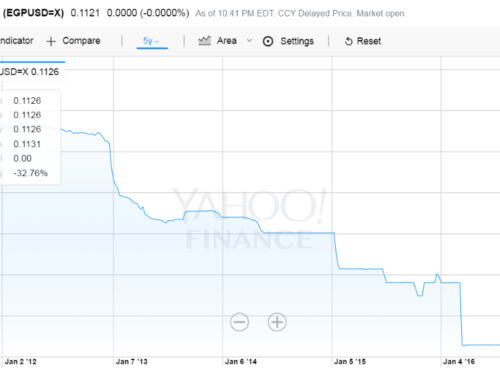Crossposted at Foreign Policy Transitions.
In short: It’s not a coup, but we’re screwed anyway.

This week, the Egyptian military made its boldest attempt yet to regain control over a country that has been slipping from its grip.
The two Thursday rulings from Egypt’s Constitutional Court — which effectively disbanded parliament while allowing Ahmed Shafiq, Mubarak’s last prime minister, to run for president — have thrown the whole political situation into chaos. But there’s an even more ominous part of the story that everyone seems to be overlooking.
To be honest, I’m even more alarmed about the decree that was published the day before. On Wednesday, the so-called Ministry of Justice issued an edict giving the military broad powers to arrest civilians. There were no previous indicators, no public debate, and no parliamentary debate either. I caught up with Member of Parliament Amr El Shobaky on the evening of the announcement, and he informed me that parliament would discuss the subject the following week, after elections. Now the suspension of parliament means that this decree will go unnoticed and undisputed.
The decree gives the army the right — the right! — to arrest civilians for any infractions of the criminal code, even if their crime has nothing to do with the army. By that logic, people protesting, striking, or painting graffiti can find themselves arrested by the army. To be sure, military arrests have been common practice since the January 2011 revolution, but there has been strong popular and activist pressure against the practice, and the military government repeatedly gave assurances that it was only a temporary measure. According to this decree, it no longer is. The notorious 1981 emergency law, which gave wide powers to the police to arrest and detain people with no mandate or trial, was suspended just a few weeks ago.
Yes, this is a clear attempt by the military to reassert its control. Many are calling this a “coup.” Fine, if you want — though I think I’d side with activist Shahira Abouleil, who calmly reminded usthat “the coup happened in 1952, and has been in effect since.”
The military regime has no intention to letting go of power. And while the Thursday rulings by the constitutional court can be viewed as legally defensible, the decree by the Ministry of Justice proves that the judiciary is indeed in the hands of the Supreme Council of the Armed Forces (SCAF), which is set on keeping the military boot on Egypt’s neck; from the top, by installing Shafiq as their man in charge, to the bottom, by giving extensive powers to the army against civilians.
Soon after the rulings on Thursday, and just four days before Sunday’s presidential election, Shafiq gave what sounded very much like a victory speech. The Muslim Brotherhood’s candidate, Mohamed Morsi, cancelled a press conference, before subsequently declaring he was still in the race for the presidency and that he would “popularly isolate” Shafiq, whatever that means.
The Brotherhood has decided to go ahead and contest this weekend’s presidential election. By doing so it squandered yet another chance to join the ranks of the revolutionaries, continuing instead to pursue narrow-minded interests rather than the long-term good of the country. Morsi would have been better off withdrawing from the race and urging his party to replenish the protesting crowds, thus rebuilding a united front against an increasingly vocal Mubarakist coalition of the army, government, and judiciary that seems prepared to stop at nothing (even challenging election results) to assert its dominance in the presidential palace and on the street.
The past week’s events have dampened hopes for a transition to a democratic Egypt. Shafiq, the candidate of the old regime, is still in the race. The army has assumed far-reaching powers. The dissolution of parliament, dominated by the Islamists, has torpedoed the political power base of the Muslim Brotherhood.
And, as always, the revolutionary forces were late to the game. While Egypt’s revolutionaries insisted on non-violence and due process during the revolution and its aftermath, they are now discovering the limitations of this idealistic approach. Someone should have realized that it is ludicrous to entrust the dismantling of a regime to its own judiciary branch — a judiciary branch that, for decades, many Egyptians in denial (and that includes me) deemed to be the last bastion of decency in an otherwise rotten government. But as one MP said earlier this month, “there may be honest judges but there is no honest judiciary.” The reputation of the judiciary is now in tatters.
So now Egyptians are bracing for presidential elections that will likely impose Shafiq and consolidate the SCAF’s power. Sure, the parliament and its abysmal performance will not be missed, but a retightening of the military’s grip is nothing to look forward to. These developments put yet another brake on an already slow and messy transition process. To call it a “coup,” as some are doing, assumes that there was some sort of change of regime over the past year. But that’s precisely what never happened.



